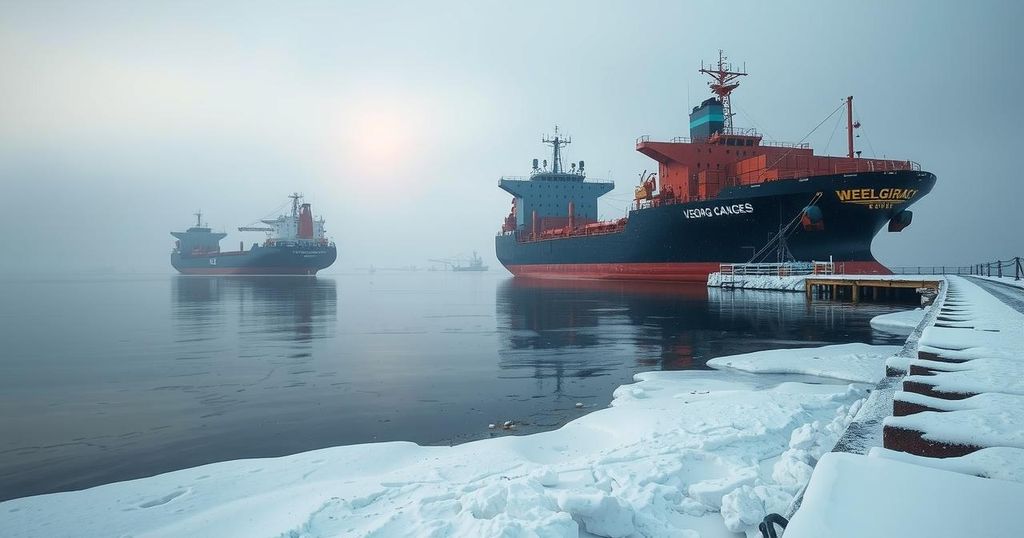Argentina to Tender LNG Cargoes for Upcoming Winter Gas Demand

Argentina will tender 5-6 LNG cargoes next week to meet winter gas demand, starting on March 17. The number of shipments is projected to be lower than last year, according to Energy Secretary Daniel Gonzalez. The country is enhancing production from the Vaca Muerta Formation to reduce energy imports and improve its financial position, achieving a $5.67 billion energy trade surplus in 2024.
In response to the upcoming winter, Argentina will initiate a tender for 5-6 liquefied natural gas (LNG) cargoes, beginning on March 17. The bidding process is expected to conclude during the week of March 25. Last year, Argentina imported 10 out of 30 planned cargoes, indicating a proactive approach to managing future gas demands.
During the CERAWeek Conference in Houston, an executive from Excelerate Energy, which operates the country’s sole import facility, stated that Argentina will not be utilizing a floating regasification unit this winter. Additionally, Daniel Gonzalez, Secretary of Energy and Mining Coordination, indicated that the projected number of LNG shipments would likely decrease compared to the previous year, contingent upon similar weather conditions.
Argentina is also expanding its production from the Vaca Muerta Formation, acknowledged as the second largest unconventional gas reserve globally and the fourth largest for oil. This initiative is part of the country’s broader strategy to diminish reliance on energy imports, thereby strengthening its financial position after years of trade deficits. In 2024, Argentina achieved a notable energy trade surplus amounting to $5.67 billion.
Argentina’s tender for LNG shipments signifies a strategic effort to address winter gas demands while simultaneously reducing energy imports through increased domestic production from the Vaca Muerta Formation. The decrease in expected shipments compared to the previous year reflects a cautious approach amidst stable weather conditions and emphasizes the nation’s ongoing efforts to strengthen its energy independence and improve its trade balance.
Original Source: www.marinelink.com








